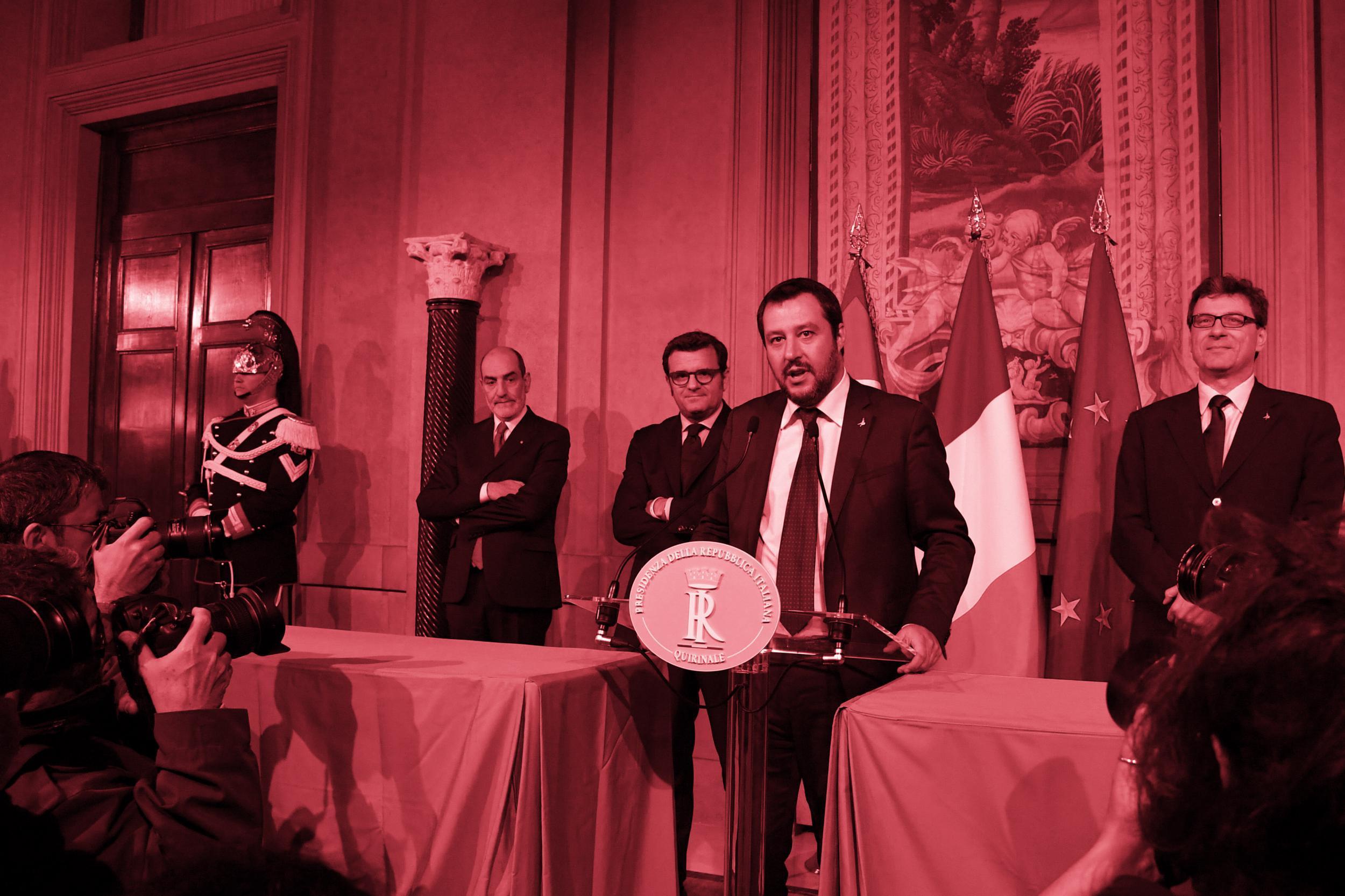What is Italy's crisis about and how serious is it?

Italy’s politics are in ferment, after a decision by the country’s president, Sergio Mattarella, effectively blocked a populist coalition between the anti-establishment Five Star movement and the anti-immigrant League.
Mattarella has now asked the former International Monetary Fund economist, Carlo Cottarelli, to form a technocratic administration to hold things together until fresh elections can be held early next year.
Yet Mattarella’s act has infuriated both the Five Star and the League. Five Star’s leader, Luigi Di Maio, has called for Mattarella’s impeachment. The League’s leader, Matteo Salvini, has questioned whether Italy is still a democracy.
Reports suggest financial markets are reacting badly, with Italian bonds and shares selling off heavily.
So what’s caused this crisis? How serious is it? And what’s likely to happen next?
How did we get here?
Five Star and the League emerged as the two largest blocs after March’s elections. Despite their very different platforms, the two parties agreed earlier this month to form a coalition.
But they chose as their finance minister an Italian academic economist, Paolo Savona, who has been intensely critical of the single currency in the past, once calling it a “German cage” and saying Italy should have a “Plan B” to membership.
The Italian president under the constitution, has the power to block individual cabinet appointments.
Mattarella chose to block Mr Savona, judging that he represented a potential threat to Italy’s place in the eurozone, something which is also (effectively) safeguarded under the constitution due to it being enshrined in EU treaties.
Five Star and the League refused to offer a different choice of finance minister, thus prompting the breakdown of the coalition.
How are financial markets responding?
Italy’s 10-year bond yields, a measure of the country’s sovereign borrowing costs, breached 3 per cent on Tuesday, the highest in four years. At the start of the month they were just 1.8 per cent.
That means many traders have been marking down the price of Italian debt and selling it because they think the chance they might not be repaid (for instance if Italy crashes out of the eurozone) has risen.
The Italian stock market was also down 3 per cent on Tuesday, and has lost around 13 per cent of its value this month.
But these movements need to be put in some context. The Italian stock market is still only back to its levels of last July, after experiencing a strong bull run since later 2016.
In 2011 and 2012 Italian bond breached 7 per cent and threatened a fiscal crisis for the government in Rome. Yields are still some distance from those extreme distress levels.
There has been some sign of “contagion” to the bond yields of countries such as Portugal and Spain but it has also been pretty limited.
How serious is it?
The financial situation is, at the moment, a far cry from the height of the eurozone crisis in 2012, when it really did look possible that weaker member states would be imminently forced to default and the single currency would collapse.
That situation was finally defused when the head of the European Central Bank, Mario Draghi, announced he would do “whatever it takes” to stop this break up happening, unveiling an emergency programme of backstop bond buying by the central bank.
This reassured private investors that they would, at least, get their money back and bond yields in countries like Italy and Spain fell back to earth, ending the risk of a destructive debt spiral.
But the latest deadlock in Rome is nevertheless the biggest crisis in the eurozone since Greece last threatened to leave in 2015.
And Italy is a much larger economy than Greece. If the third largest country in the bloc exited the euro, it is doubtful the single currency would survive.
Further, Italy’s sovereign debt pile of €2.3 trillion is the largest in the eurozone – meaning that if it crashed out and effectively defaulted on all that borrowing, the wider financial repercussions would be enormous.
What will happen next?
Five Star and the League did not call for a referendum on euro membership in the election, recognising that most Italians do not want currently to leave either the single currency or the EU.
But the two populist forces have both made noises to that effect in the past.
And some suspect the selection of Savona as finance minister might have been a deliberate provocation to Mattarella and to the rest of the eurozone, designed to prompt this crisis and stoke the forces of euroscepticism and defiant nationalism in the country.
The argument is that the two parties (the League in particular) hope to win an even larger mandate in fresh elections – and this time to win on the basis of an explicitly anti-Brussels, anti-euro manifesto.
That could set the scene for an extremely dangerous political clash within the broader single currency area and potentially a new financial crisis.
It’s possible that the technocratic Italian establishment are overplaying their hand, misjudging the mood of the nation and dancing to the populists’ tune.
The fact that Italian bond yields spiked sharply after the presidential veto was used suggests that’s what financial markets suspect.
But they may not be correct.
Five Star and the League might have peaked. They could do worse in new polls and euroscepticism could fail to surge as the severe costs of leaving the single currency become salient to the Italian public.
It’s possible the spike in Italian borrowing cost in recent weeks will already be putting many people off.
Yet the breakout success of two anti-establishment parties has already revolutionised the Italian political scene and the simple truth is that no one can really know how this story will end.
Join our commenting forum
Join thought-provoking conversations, follow other Independent readers and see their replies
Comments
Bookmark popover
Removed from bookmarks